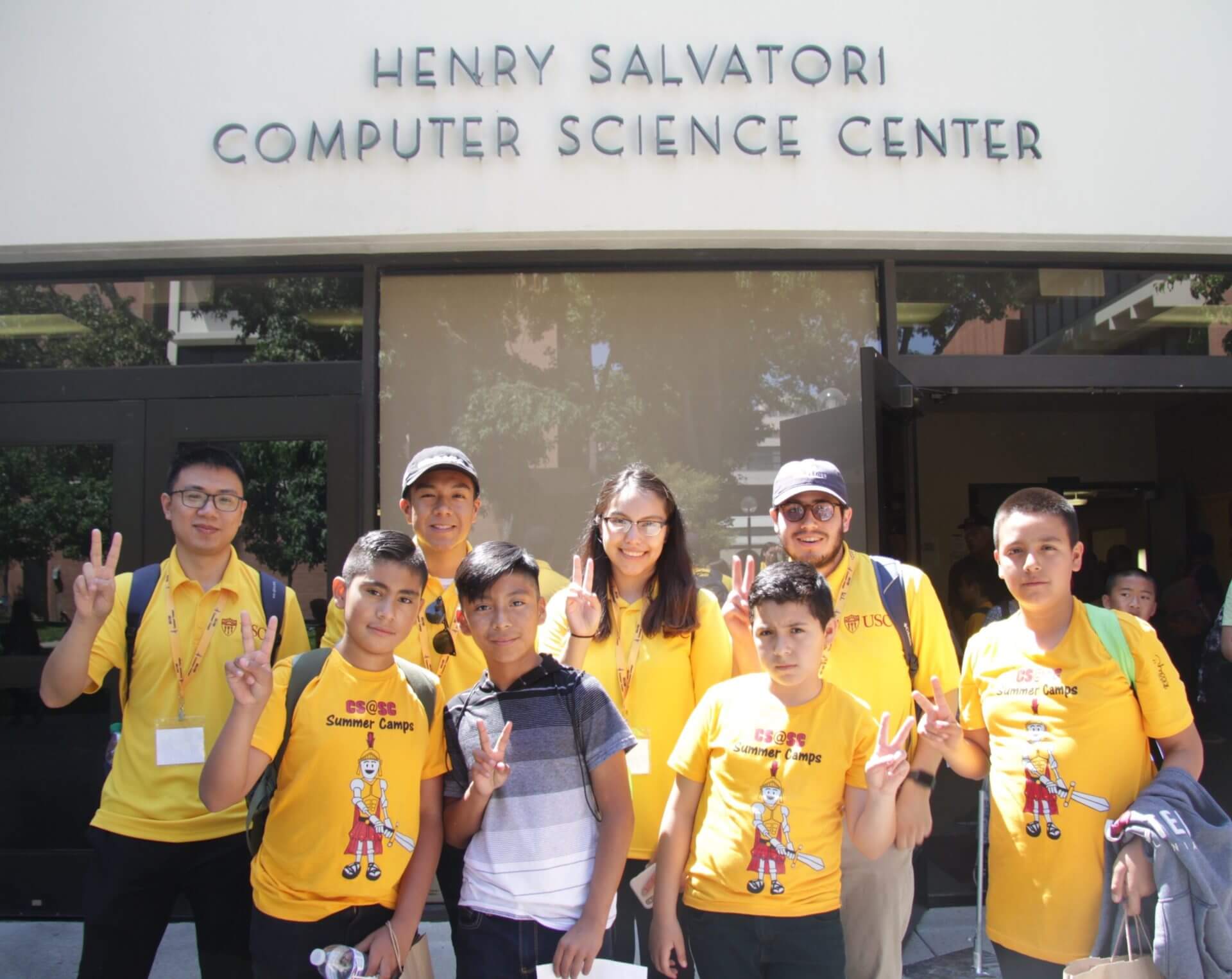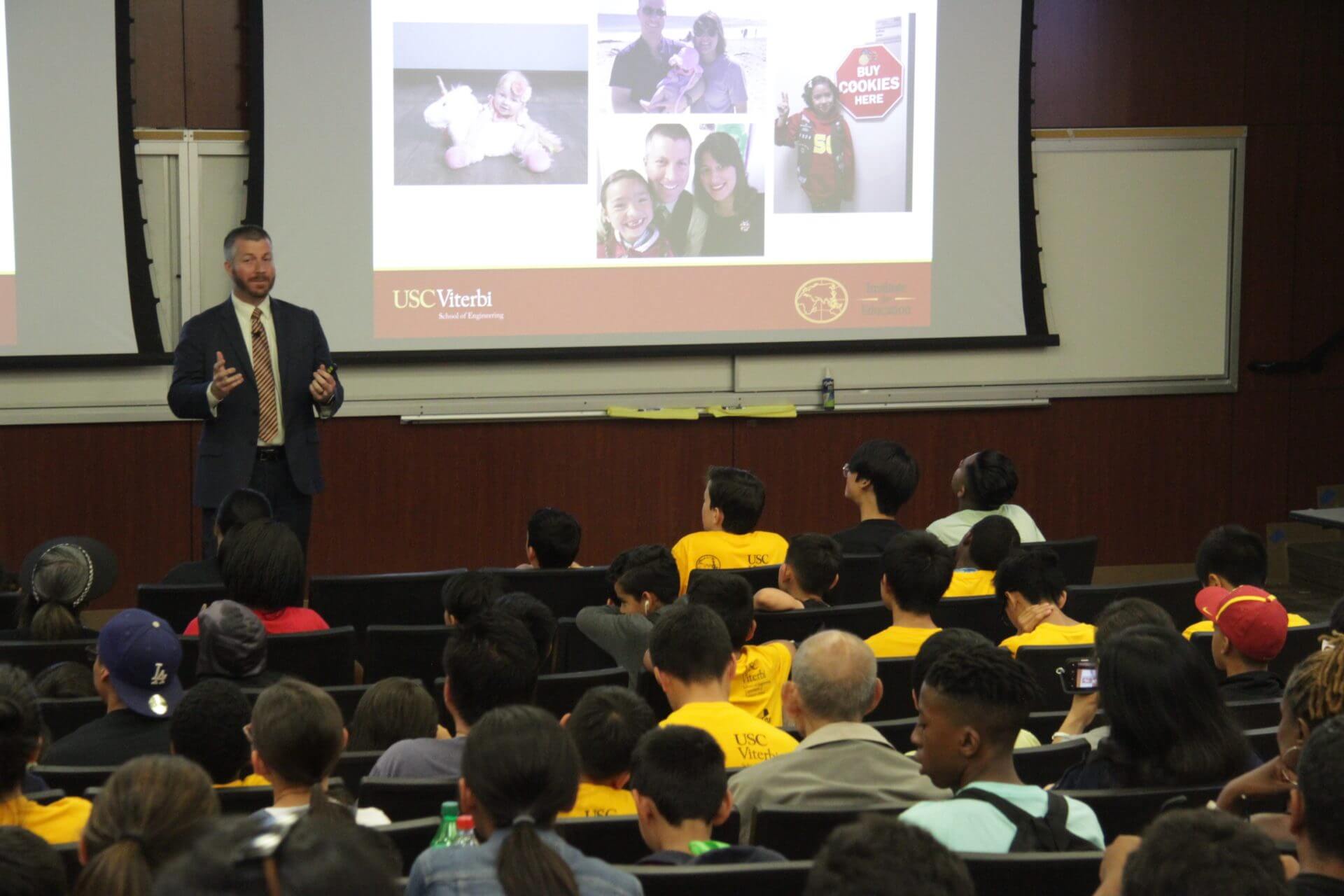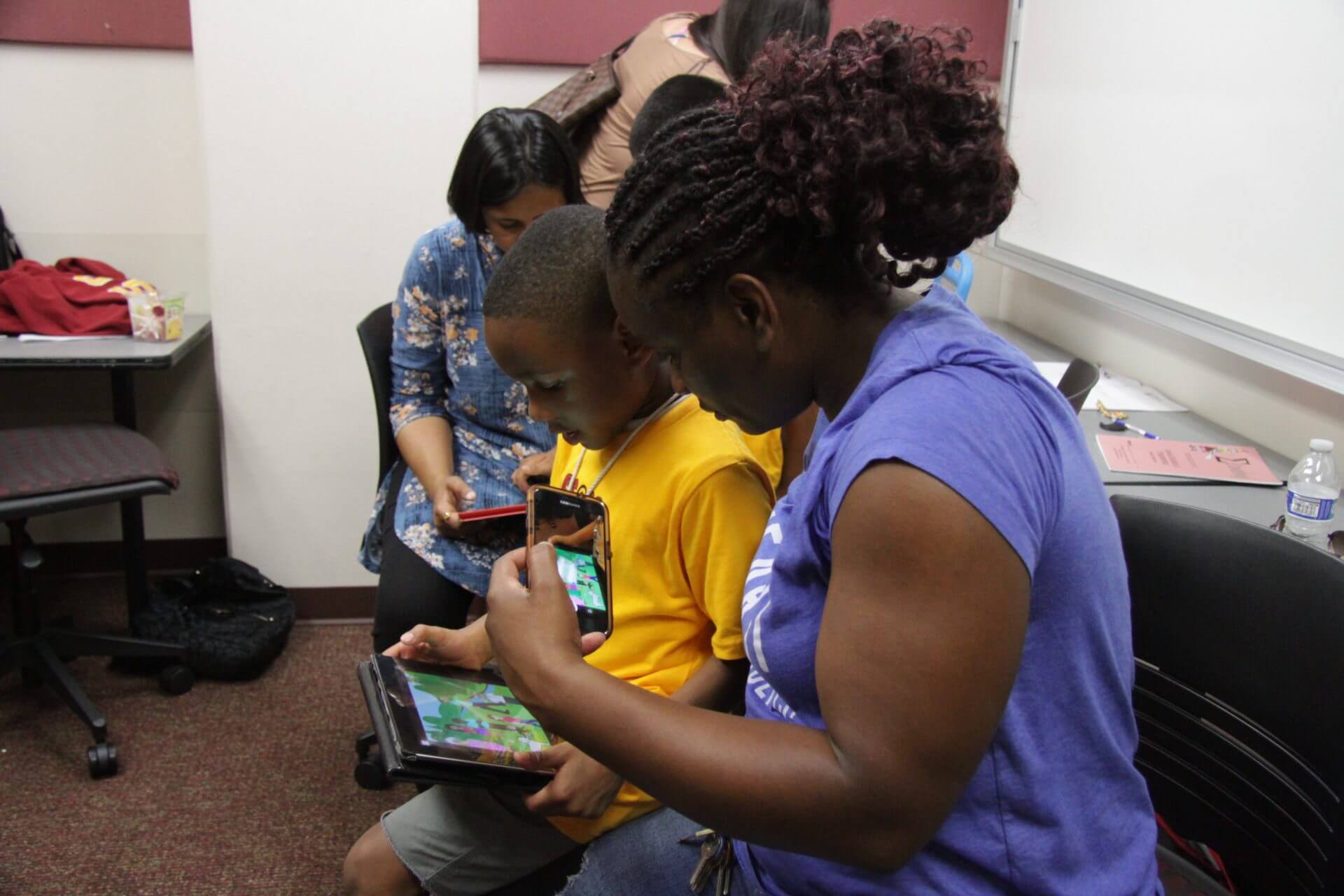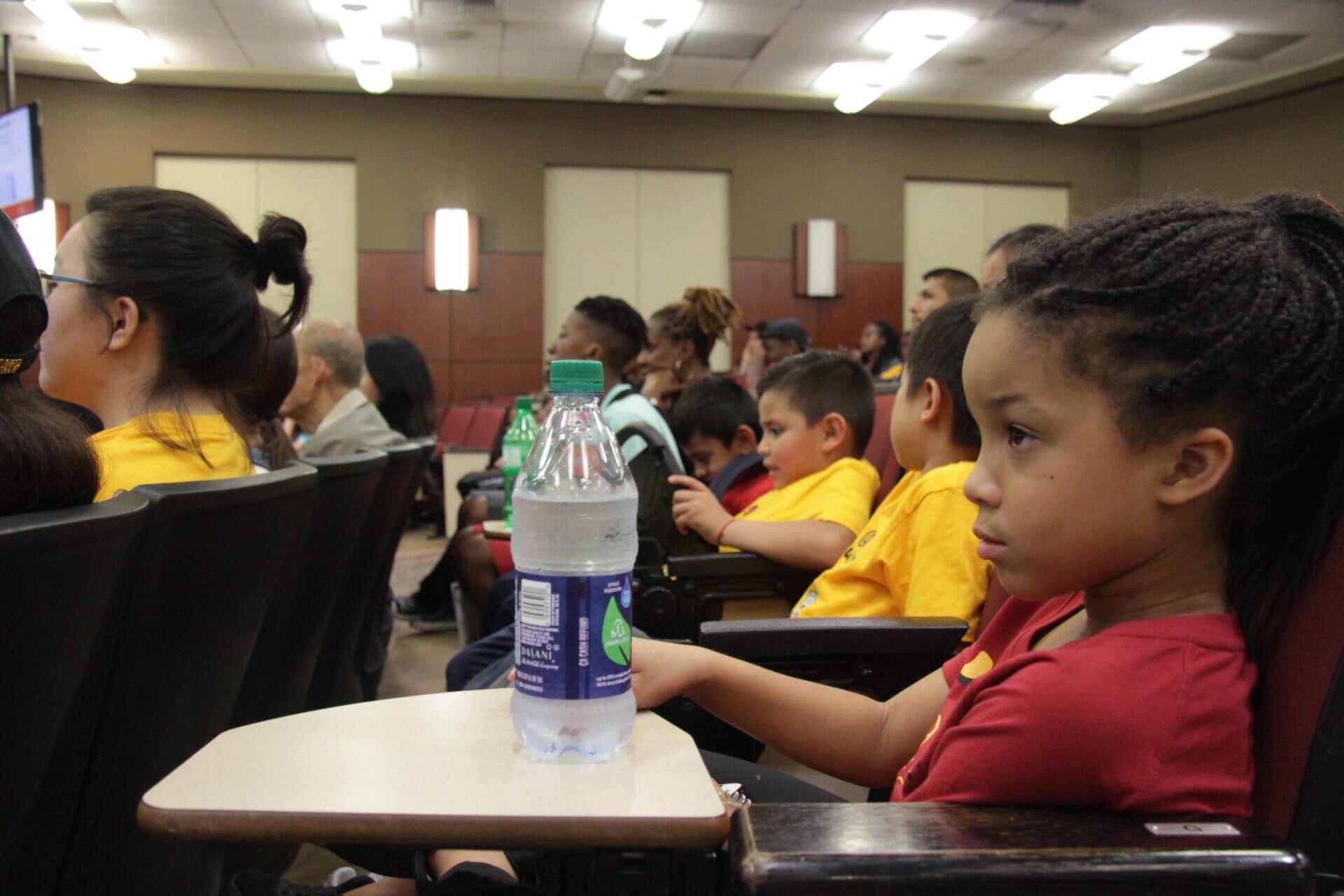
Teaching assistants with their students after the camp (Photo/Reeves Gift)
In 2016, President Obama said: “In the new economy, computer science isn’t an optional skill—it’s a basic skill, right along with the three R’s.”
Despite this, fewer than 30 percent of California’s high schools offer classes related to computer science – the ones which do are usually located in more affluent areas. The College Board, which administers the SAT and manages the Advanced Placement Program, reported that 82 percent of students who took an AP in Computer Science class in 2014 were white or Asian. 20 percent were female.
If “Hello World” meant nothing to a student, why would they even consider a career in computer science? Already, there is a stereotype in place that programming is for the privileged who receive exposure to tech.
Jeffrey Miller, USC Viterbi associate professor of engineering practice and Director of the Information Technology Program (ITP), looks to change this, and, in the process, cultivate a sense of self-confidence among underrepresented students.
He’s not alone in this endeavor.
USC is currently the only institution within the United States which receives funding from the Institute for Education (IFE), a non-profit organization. With their funding and support, Miller and 29 teaching assistants, organize CS@SC Summer Camps.
The vision of the summer camps is to provide an early education into computer science and engineering. In the past four years, they have educated around 2000 children.

Jeffrey Miller addresses students and parents at the end of the camp (Photo/Reeves Gift)
Although Miller’s summer camp is open to everyone, its goal is to attract more girls and underrepresented minorities to engineering. IFE offers generous scholarships in an effort to reduce the barrier to entry for low income students.
“Over 75 percent of our students are ethnic minorities,” Miller said. “Seventy percent of them have a self-reported annual family income of less than $40,000.”
Miller also pointed out that 40 percent of attendees are girls — more than double the national average of women studying computer science, as reported by the American Society of Engineering Education.
CS@SC 2019

Kids, teaching assistants, and Jeffrey Miller smile for the group photo (Photo/Reeves Gift)
The fifth edition of the CS@SC Summer Camps began on July 8, 2019. Topics include Python, Java, Scratch, web development, and robotics.
Amidst the chaos of their lunch break, Alexander Moore, a ninth grader from South High School, sat in silence near a fountain, as he modified his web-scraping code.
“I learned to use the BeautifulSoup library in Python during this camp,” he said. “Sadly, we don’t have CS classes at school. But I like Googling about it and learning on my own,” he shared solemnly, before returning to tap away at his laptop.
Teaching assistants as role models
CS@SC ensures that its teaching assistants, or TAs, are as diverse as its students.
“The biggest factor that will affect somebody going into a field is if they see someone in the field that they relate to,” Miller said. “The kids can look at them and say, ‘They’re doing it. Why can’t I?’”
“If the kids realize they can do just as well as anyone, which is the truth, we’ve done our job.”
Jeffrey Miller
One of Miller’s TAs is Neftali Hernandez, a senior pursuing electrical engineering. He teaches Intermediate Scratch and Beginner’s Python.
“As an inner-city kid from Los Angeles, having the ability to give back to the youth and to show them what I have learned is the most rewarding experience,” he said.
Some of the TAs, like Kelly Dickinson, credit the choice they made to pursue computer science to the exposure they received to the field in middle school.
From confused to confident

Josiah shows his mother the games he developed on Scratch (Photo/Reeves Gift)
The teaching assistants observed a radical change in students from Monday through Friday, especially in their curiosity about programming.
“By far, the most common question after the first day is, “Are we going to build a game?” Once they learn to write a loop, their imagination takes over,” Hernandez said.
The students also got the chance to see their projects evolve right before their eyes.
“On Monday, they create a little Pac-Man character,” Miller said. “On Tuesday, they make his mouth open and close. Wednesday is the background. By Friday, when their parents come down, they’ve made a functioning Pac-Man game, all on their own.”
Evan Zamora, a computer science student at USC Viterbi, taught Scratch, which is more of “visual programming.”
Said Zamora: “They learned by dragging blocks around; then they went out of the box.”
Josiah Edu, a first grader from D. W. Long Elementary School, was completely absorbed in the games he created with Scratch. “I like Scratch because it’s like storytelling,” he said. “And I can drag blocks to create a background, create characters, and give them dialogue.”

A young girl listens intently as Miller speaks about equal opportunities for all (Photo/Reeves Gift)
Parents are also welcomed to participate.
“He built three robots, each more complicated than the last,” said Mina Yau, a proud mother after watching her son’s final demonstration video. “One could hold objects in its arms and fling them backwards!”
Illustrating the importance of diversity on any team, Miller likes to tell the young students a story:
“The first airbags that were ever put into a car were designed by a team of male engineers. They used dummies and did all the calculations. But when they were released, women were being hit in the face and getting their noses broken! The team had designed it knowing that the average height of a man was 5’ 8”, but they didn’t account for women being shorter. And all it would have taken to correct that was one woman on that team.”
Published on August 26th, 2019
Last updated on April 21st, 2025

